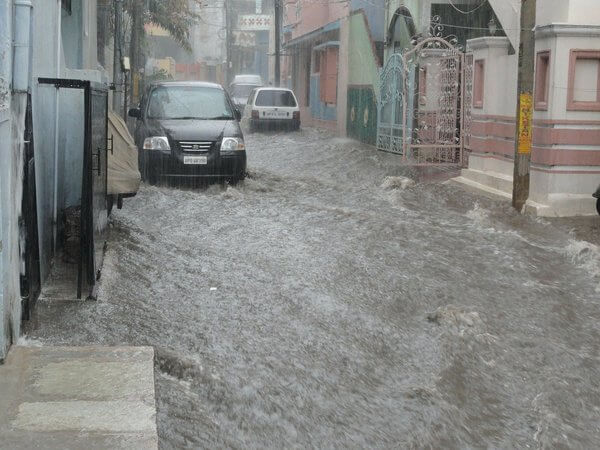News Release from windfair.net
Wind Industry Profile of
Global Earth Overshoot Day: Boom, it's all used up!
One year ago, society discussed how life on earth will change after the Covid-19 lockdowns. How can humanity form a better, fairer society and set the economy on course against climatic change. Now it shows: nothing has changed.
This is particularly evident on today's Global Earth Overshoot Day (July 29, in 2021). According to Germanwatch, the day marks the point in the year by which humanity has claimed as many resources from the Earth as all ecosystems can renew in an entire year. Due to the Corona pandemic, the day had slipped back just under three weeks in 2020, and hopes were high that with some effort this could be permanent. But there's no sign of that now, because this year, according to the Global Footprint Network, the Earth's sustainably usable resources were used up again as early as in 2019.
According to this, the world's population arithmetically requires 1.75 planets to sustainably meet its resource needs. However, not all countries contribute equally to Earth Overshoot Day. The industrialized nations in particular are pushing the date forward: Germany's Earth Overshoot Day in 2021 was already on May 5. So if all countries were to budget like Germany, as many as 3 Earths would be needed. With a lifestyle like China's, it would be 2.2 Earths, with the U.S. even 5.
"We are now experiencing the feared rebound effect, the sudden increase in emissions after the peak of the pandemic," explains Steffen Vogel from Germanwatch's corporate responsibility team. "The fact that despite the pandemic's persistence resource consumption is already back to 2019 levels this year shows: we need a change of direction in climate and resource policy more urgently than ever. COVID-19 stimulus programs must absolutely be aligned with sustainable economic practices."
"To stop the constant overextension of the planet's boundaries, we also need closer international cooperation on several levels. Thus e.g. the German government must now work with its European partners to accelerate the implementation of the European Green Deal," said Audrey Mathieu, EU climate policy officer at Germanwatch, pointing to a way out of the crisis.

Many countries in Europe were hit by severe flooding this summer (Image: Pixabay).
Figures from the International Energy Agency (IEA) also recently showed that Corona did not have the hoped-for effect: While governments around the world are using an unprecedented amount of taxpayer money to stabilize and rebuild their economies after Covid-19, only about 2 percent of that spending has been allocated to clean energy measures. Public and private money mobilized globally through stimulus programs falls far short of what is needed to meet international climate goals.
“Since the Covid-19 crisis erupted, many governments may have talked about the importance of building back better for a cleaner future, but many of them are yet to put their money where their mouth is. Despite increased climate ambitions, the amount of economic recovery funds being spent on clean energy is just a small sliver of the total,” said Fatih Birol, the IEA Executive Director.
The recent freak weather shows that the climate crisis has long since arrived in the industrialized nations as well: while heat waves in the U.S. lead to bush fires, Europe has to deal with large amounts of precipitation amounts. Tennis-ball-sized hailstones caused a stir in Italy, while heavy rain led to catastrophic flooding in Germany.
In September, there will be a general election in Germany. One thing is already clear: "The next German government will have a major task ahead of it, both at the EU level and in taking effective measures to achieve Germany's improved climate targets," Mathieu stresses. And the issue of climate protection should be at the top of the agenda.
- Author:
- Katrin Radtke
- Email:
- press@windfair.net
- Keywords:
- Earth Overshoot Day, global, earth, Germany, China, USA, flood, weather, resources, Corona, Covid 19, pandemic, society, renewable energy, climate change


























